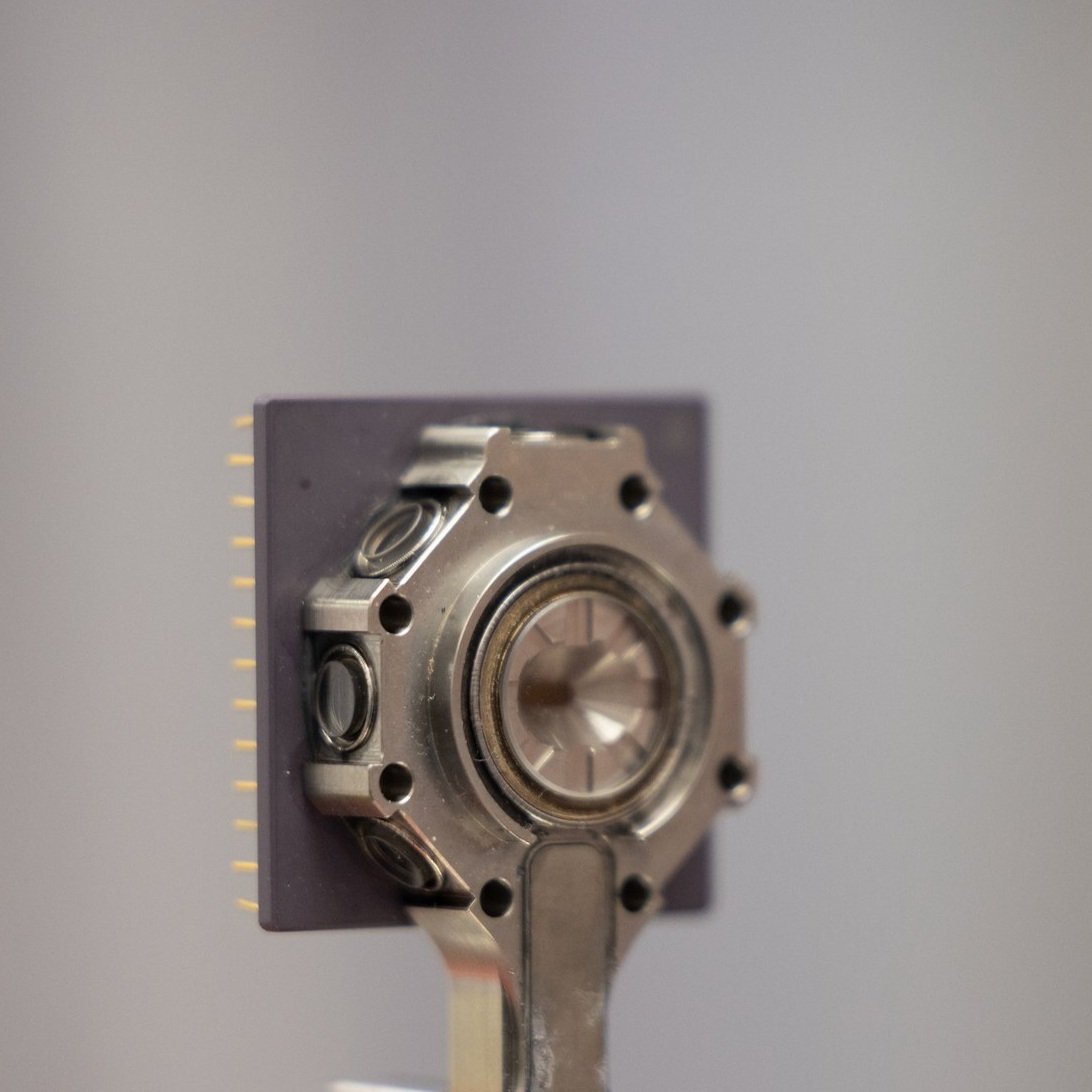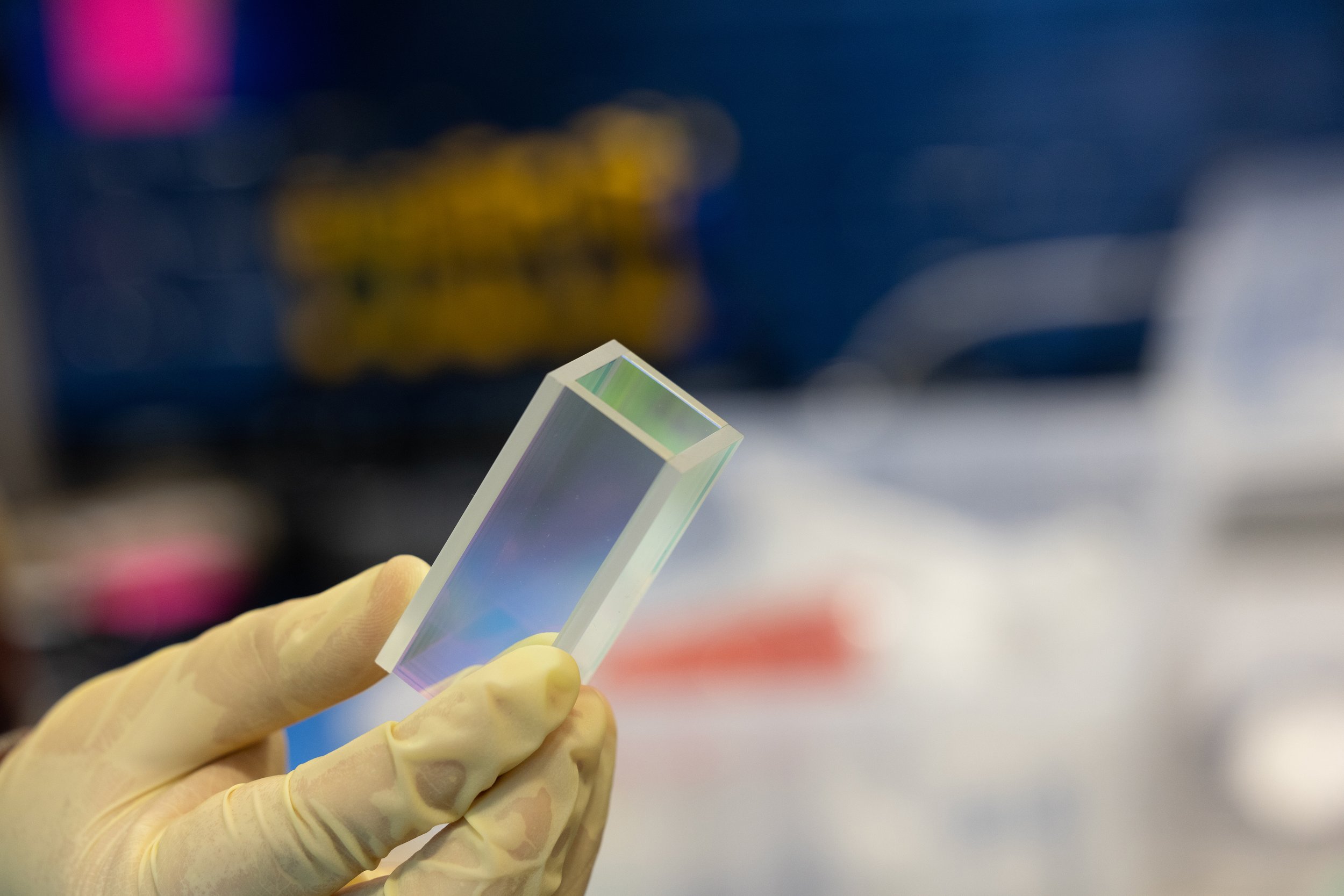
Innovation
Pioneering Quantum Solutions for the Future
With over 17 years of groundbreaking research, Infleqtion is at the forefront of quantum technology, building on the legacy of ColdQuanta. Our expertise spans compute, sensing, AI, software, and quantum RF, allowing us to deliver innovative solutions and applications across diverse end markets.
We’ve forged strategic partnerships with the US government, NASA, and several allied organizations, positioning ourselves as a key player in the quantum landscape. Our state-of-the-art lab produces components that are integral to numerous companies striving to bring quantum products to market.
Together, we’re not just participating in the quantum revolution; we’re leading it..
Focused Applications & End Markets
Algorithms and Applications
Infleqtion deploys business applications to any quantum computer through an optimized software stack developed by leading researchers. We make a wide range of solutions accessible without the need for quantum experience. Our access to simulators and hardware enables you to forecast the commercial value that quantum will add to your organization.
Positioning, Navigation, and Timing
Today’s navigation and security tools rely on GPS technology, which utilizes satellite data. Infleqtion’s atomic clocks solve for situations where GPS-timing is not reliable or available. Our atomic clocks will surpass state-of-the-art performance while achieving a smaller form factor, less power consumption, and lower costs.
Quantum Sensing
Quantum computing usually gets everyone’s attention, but quantum sensors are advancing faster and will most likely be deployed sooner. Quantum sensors can measure minute changes in the environment and could one day be used to detect objects underwater or underground, or to provide navigational information if GPS is knocked out or not available.
Quantum Cores
For over a decade, we've been a critical supplier of key component technologies to many of the world’s research labs and early commercial leaders in quantum machine development. From offering individual components to complete plug-and-play solutions, we carefully craft our products to provide the precision needed to deliver accurate results for your experiments.
Quantum Computing
Sqorpius is the next phase of Infleqtion’s quantum computing program. This new initiative is dedicated to creating error-corrected logical qubits tailored for commercial applications. Infleqtion also builds quantum computers for select national quantum centers around the world, including the Japan Moonshot Program and the UK’s National Quantum Computing Centre (NQCC).
Quantum RF
Quantum radio frequency (QRF) accesses the frequency spectrum like never before. It has vast implications for the telecom and mobile industry. Infleqtion is accessing the RF spectrum at a world record pace and is currently developing QRF technology that will allow us to see farther, faster.
Pioneering quantum capabilities since 2007
Research
-
How to Train Your Gyro: Reinforcement Learning for Rotation Sensing with a Shaken Optical Lattice
As the complexity of the next generation of quantum sensors increases, it becomes more and more intriguing to consider a new paradigm in which the design and control of metrological devices is supported by machine learning approaches. In a demonstration of such a design philosophy, we apply reinforcement learning to engineer a shaken-lattice matter-wave gyroscope involving minimal human intuition.
Liang-Ying Chih, Dana Z. Anderson, Murray Holland (Dec 29, 2022)
-
Application of Shaken Lattice Interferometry Based Sensors to Space Navigation
High-sensitivity shaken lattice interferometry (SLI) based sensors have the potential to provide deep space missions with the ability to precisely measure non-gravitational perturbing forces. This work considers the simulation of the OSIRIS-REx mission navigation in the vicinity of Bennu with the addition of measurements from onboard SLI-based accelerometers.
Rybak, Margaret M., et al. "Application of Shaken Lattice Interferometry Based Sensors to Space Navigation." Advances in Space Research (2022).
-
Maxwell Matter Waves
Maxwell matter waves emerge from a perspective, complementary to de Broglie's, that matter is fundamentally a wave phenomenon whose particle aspects are revealed by quantum mechanics. Their quantum mechanical description is derived through the introduction of a matter vector potential, having frequency ω0, to Schrodinger's equation for a massive particle. Maxwell matter waves are then seen to be coherent excitations of a single-mode of the matter-wave field. In the classical regime, their mechanics is captured by a matter analog of Maxwell's equations for the electromagnetic field.
Anderson, Dana Z. "Maxwell Matter Waves." arXiv preprint arXiv:2204.04549 (2022).
-
Clifford-based Circuit Cutting for Quantum Simulation
Quantum computing has potential to provide exponential speedups over classical computing for many important applications. However, today's quantum computers are in their early stages, and hardware quality issues hinder the scale of program execution. Benchmarking and simulation of quantum circuits on classical computers is therefore essential to advance the understanding of how quantum computers and programs operate, enabling both algorithm discovery that leads to high-impact quantum computation and engineering improvements that deliver to more powerful quantum systems.
Smith, K. N., Perlin, M. A., Gokhale, P., Frederick, P., Owusu-Antwi, D., Rines, R., ... & Chong, F. T. (2023). Clifford-based Circuit Cutting for Quantum Simulation. arXiv preprint arXiv:2303.10788.
-
QContext: Context-Aware Decomposition for Quantum Gates
In this paper we propose QContext, a new compiler structure that incorporates context-aware and topology-aware decompositions. Because of circuit equivalence rules and resynthesis, variants of a gate-decomposition template may exist. QContext exploits the circuit information and the hardware topology to select the gate variant that increases circuit optimization opportunities. We study the basis-gate-level context-aware decomposition for Toffoli gates and the native-gate-level context-aware decomposition for CNOT gates. Our experiments show that QContext reduces the number of gates as compared with the state-of-the-art approach, Orchestrated Trios.
Liu, J., Bowman, M., Gokhale, P., Dangwal, S., Larson, J., Chong, F. T., & Hovland, P. D. (2023). QContext: Context-Aware Decomposition for Quantum Gates. arXiv preprint arXiv:2302.02003.
-
Mid-circuit measurements on a neutral atom quantum processor
We demonstrate mid-circuit measurements in a neutral atom array by shelving data qubits in protected hyperfine-Zeeman sub-states while non-destructively measuring an ancilla qubit. Measurement fidelity was enhanced using microwave repumping of the ancilla during the measurement. The coherence of the shelved data qubits was extended during the ancilla readout with dynamical decoupling pulses, after which the data qubits are returned to mf = 0 computational basis states. We demonstrate that the quantum state of the data qubits is well preserved up to a constant phase shift with a state preparation and measurement (SPAM) corrected process fidelity of F = 97.0(5)%.
Graham, T. M., Phuttitarn, L., Chinnarasu, R., Song, Y., Poole, C., Jooya, K., ... & Saffman, M. (2023). Mid-circuit measurements on a neutral atom quantum processor. arXiv preprint arXiv:2303.10051.















